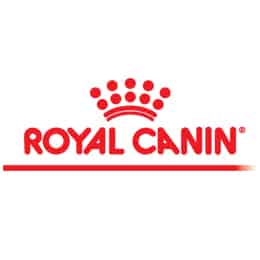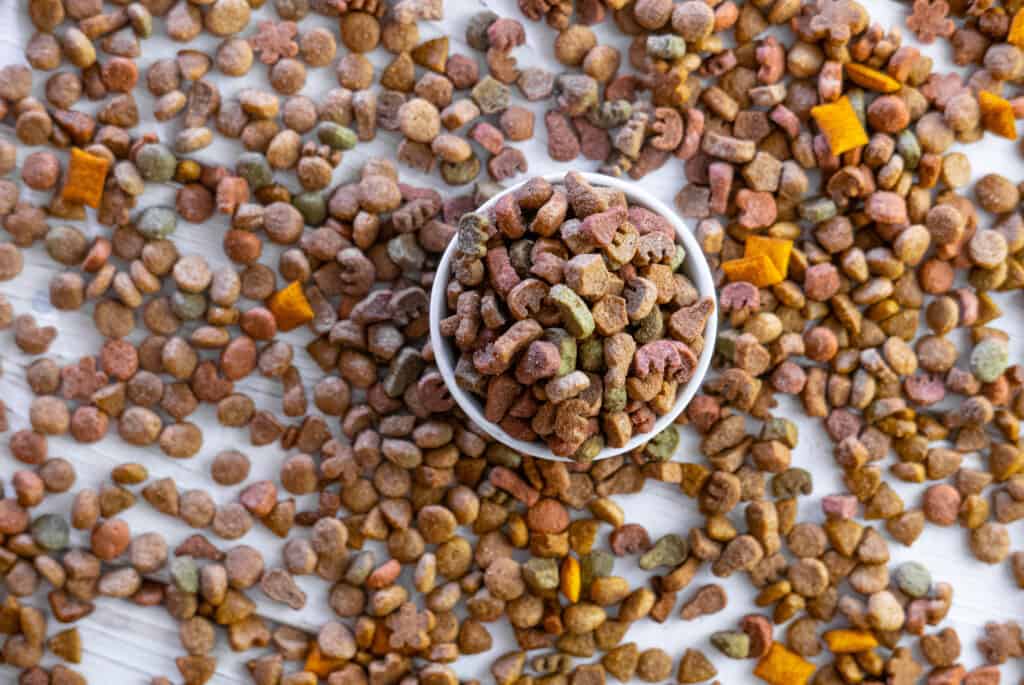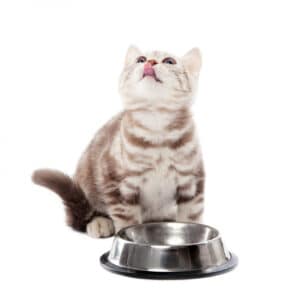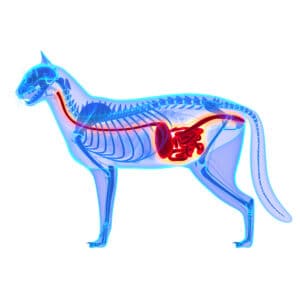 Royal Canin has made quite a name for itself with the array of veterinary and in store options for cats. Royal Canin has become a trusted brand by veterinarians that has begun to win their hearts over previous cat food favorites.In this article we’ll dive into the specifics of Royal Canin Cat food, and discuss each product in detail based on an overall nutrition standpoint.
Royal Canin has made quite a name for itself with the array of veterinary and in store options for cats. Royal Canin has become a trusted brand by veterinarians that has begun to win their hearts over previous cat food favorites.In this article we’ll dive into the specifics of Royal Canin Cat food, and discuss each product in detail based on an overall nutrition standpoint.Quick Review: Top-6 Cat Foods From Royal Canin
History Of Royal Canin Cat Food
 Royal Canin was created in the 1960’s by a veterinary surgeon named Jean Cathary. Cathary was working in a village in the Gard region of southern France when he noticed the epidemic of troubling skin and coat conditions of the local animals. Hee knew that a lot of these problems can be due to poor nutrition, so he decided to create a food that could help alleviate the symptoms of the village animals.
Royal Canin was created in the 1960’s by a veterinary surgeon named Jean Cathary. Cathary was working in a village in the Gard region of southern France when he noticed the epidemic of troubling skin and coat conditions of the local animals. Hee knew that a lot of these problems can be due to poor nutrition, so he decided to create a food that could help alleviate the symptoms of the village animals.
After trying several recipes and cooking up the perfect solution in an oven in his garage, he released the new food. The food was an instant hit, and Cathary soon trademarked the Royal Canin brand.
Royal Canin first made its way around Europe, and after years of success, Royal Canin was purchased by Mars Pet Food. Royal Canin is now a successful global company.
Ingredients That Royal Canin Focuses On
 Royal Canin cat food focuses on overall pet nutrition versus particular ingredients. They focus on the precise nutrients that a cat needs versus trying to make sure they have human grade food in their kibble and canned food.
Royal Canin cat food focuses on overall pet nutrition versus particular ingredients. They focus on the precise nutrients that a cat needs versus trying to make sure they have human grade food in their kibble and canned food.
Though some people don’t like this and would prefer human grade ingredients, Royal Canin ensures that each of their diets will meet their specific dietary needs for each life stage and condition they may face.
Royal Canin has options for cats of all kinds. By focusing on each cat’s specific needs, they can tailor each diet to have a certain set of nutrients that best suit your cat.
What cat food options does Royal Canin offer?
Royal Canin currently offers over 100 diets for cats, each made to fit your cat’s specific needs. There are diets for sensitive stomach, life stages, certain breeds, body sizes, and a line of veterinary foods for different medical conditions.
Some of the most popular diets offered in store from Royal Canin include:
- Royal Canin Kitten
- Royal Canin Mother and Babycat
- Royal Canin Indoor Adult
- Royal Canin Digestive Care
- Royal Canin Weight Care
- Royal Canin Aging 12+ Wet Food
- Royal Canin Spayed & Neutered Wet Food
- Royal Canin Indoor Long Hair
- Royal Canin Hair & Skin Care
What do customers think about Royal Canin cat food?
Since Royal Canin has been around for quite some time, there are thousands of reviews that can help you make your decision about this diet. Below are a few reviews of the Royal Canin brand:
Positive Reviews
“My three cats have been eating Royal Canin since they were 8 weeks old…first the kitten version and now the indoor. They are all very healthy with healthy coats and best of all they are all within a healthy weight range.” – Royal Canin Indoor Adult
“My indoor-only cats love this dry food, even more than their wet cat food (we’re down to one brand and one flavor of wet food now). My vet loves this food, too, and always commends me upon using Royal Canin dry cat food.” – Royal Canin Indoor Adult
“Can cat food be miraculous? My 17 year old cat has glaucoma, arthritis and renal failure. After reading The China Study, and reading about the detrimental effects of dairy in humans, I looked for a cat food that did not contain dairy, and found this. The switch to this food was nothing short of amazing. Sure, my geriatric cat did not suddenly turn into a kitten, but she’s no longer needing supplements for the arthritis, and her urine output is much reduced (better kidney function).
We also have a 2 year old cat that also eats the same food. He LOVES it, too. A win all around.”- Royal Canin Indoor 7+
Negative Reviews
“Gave it two stars because my vet confirmed this was a great brand for cats and my guy loved it but it seemed to give him indigestion or gas. He threw up way more than I was comfortable with on this. I took him to the vet in a panic and had x-rays and blood work done only to find out he was perfectly healthy. As soon as I changed his food the problems went away.” – Royal Canin Weight Care
“My vet recommended Royal Canin for my 4-year old cat. She enjoys eating it and it doesn’t make her throw up the way it has for some of the other reviewers’ cats. But this is the only brand that consistently makes my cat constipated, not sure why.” – Royal Canin Indoor Adult
Royal Canin Food Recalls As Of
Royal Canin has had a total of three recalls in recent years. Below is a list and description of all recent Royal Canin Recalls
2007: There were two Royal Canin recalls in 2007. The first recall was due to melamine contamination in the hypoallergenic veterinary diet. The second recall was also due to melamine being present in the food, but this time it was a voluntary recall.
2006: Royal Canin issued a recall in 2006 due to excess levels of vitamin D3 in several of their cat and dog food products.
Royal Canin Cat Food Product Breakdowns
- Royal Canin Indoor Adult
Pros
- Made specifically for adult indoor cats.
- Calorie control for a more leisurely lifestyle of the indoor cat.
- Added fiber to help limit hairballs
- Added essential minerals to help chip away at tartar
Cons
- Does contain chicken, so cats with poultry allergies may not be able to enjoy this food.
- Royal Canin Aging 12+
Pros
- Designed specifically with older cats in mind.
- Lower phosphorus levels that are easier on the kidneys.
- Easily digestible ingredients make it easier for senior cats to absorb every nutrient.
- Square shaped kibbles make it easier for senior cats to eat.
Cons
- This diet does contain chicken and grains, so those with allergies may not be able to enjoy this food.
- Royal Canin Kitten
Pros
- Made specifically for kittens 4-12 months of age.
- Special blend of antioxidants and minerals for a healthy immune system.
- Helps to establish a healthy digestive system
- High in protein and minerals for high energy kittens
- Small kibbles make it easy for kittens to eat
Cons
- Since it is high in calories, it’s important to switch your kitten from this diet at 1 year of age or they can become overweight.
- Contains chicken, so cats with poultry allergies may have difficulties with this food.
- Royal Canin Mother & Babycat
Pros
- Made specifically for young kittens and nursing/pregnant female cats
- Packed with vitamins and antioxidants for optimal immune health
- Digestible proteins and probiotics make for easy digestion and gut health
- Included DHA which helps in brain development starting in the womb for pregnant cats who consume this food.
Cons
- This food is extremely high in calories, so you must switch your kittens off this diet once they reach 6 months of age at the most.
- Contains chicken, so cats with poultry allergies may have difficulties with this food.
- Royal Canin Sensitive Digestion
Pros
- Made specifically for cats with sensitive stomachs
- Made with highly digestible proteins and fibers for easy digestion
- Added probiotics for ideal gut health
- Unique kibble shape to help promote interest in food
Cons
- This food does contain chicken, so if their sensitivities are due to chicken, this food will not be ideal.
- Royal Canin Weight Care
Pros
- Made specifically for cats that are prone to weight gain.
- Lower calorie count helps your cat build lean muscle and maintain a healthy weight
- Contains added fibers to help cats feel full longer
- Contains L-carnitine which helps to support a healthy metabolism.
Cons
- Since it is low in calories, it’s important to make sure that it’s only fed to overweight cats, as cats in a normal weight range may require added calories and nutrition.
- This food does contain chicken, so it;s not ideal for cats with poultry allergies.
- Royal Canin Hair & Skin Care
Pros
- Made specifically for cats with skin and coat sensitivities like dandruff, dull coat, and mils hair loss.
- Contains ingredients that help to lubricate their dry skin.
- Is proven to show coat improvement in 21 days
Cons
- This food contains chicken, so it is not ideal for cats with poultry allergies.
FAQ
Why do veterinarians recommend Royal Canin?
Aside from their prescription diets truly saving lives, is the quality nutrition that each diet provides. Feline diet plays a huge role in their overall health, and Royal Canin diets have been proven to improve digestion, support immune health, and meet specific needs based on their array of diet options.
Do cats need to eat protein from meat sources?
Yes, cats are obligate carnivores, meaning they depend on protein from animal tissues. Cats depend on animal sourced protein and taurine to perform their metabolic functions, and will not be able to survive on plant proteins alone.
How can I avoid an upset stomach when I switch my cat to a new food?
When you switch your cat to a new food, it’s important to take this process slowly. If you abruptly switch them from one food to another, you risk causing them to have diarrhea, vomiting, and a number of other gastrointestinal symptoms. Start by slowly combining the food over the time span of two weeks. Each day add more and more of the new food to their old food until you have completely transitioned to the new diet.



